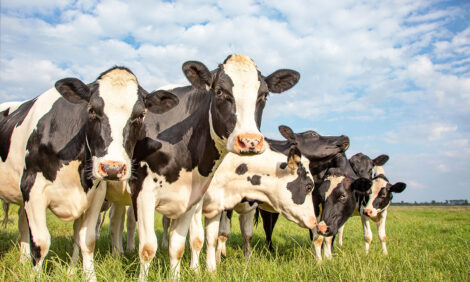



Calls For A Milk Market With Volume-Regulation
EU - Stable prices and fair incomes for dairy farmers are crucial to ensuring the supply of high quality dairy products and preserving a vibrant rural environment in Europe, says the European Economic and Social Committee (EESC) opinion on the future of the EU dairy strategy adopted at the 17 February plenary session.A few months after dairy farmers from across the EU demonstrated in Brussels against price swings on agricultural markets, the EESC has come out strongly in favour of maintaining market intervention measures in order to balance supply and demand. "Food in general and milk in particular are too important for the well-being of citizens to be left to the vagaries of a free, unregulated market", said rapporteur Frank Allen (Various Interests Group, Ireland).
The EU produces more dairy products than it consumes. As an example, milk production quotas set by the Commission are not fulfilled and this is likely to remain the case over the coming years due to too low prices that, in many cases, are below the production cost. As prices tend to rise in the medium term, production will eventually rise, which in turn will drive prices down again.
Furthermore, increasing concentration in the retailing sector, which has given the retail sector an unmatched bargaining power, turned farmers from "price-makers" into "price takers". Raising quotas and eventually abolishing them irrespective of demand levels is thus incompatible with the European Union's ambition of developing a sustainable farming model and ensuring continued milk production, says the EESC.
As milk production is a key driver for the future of many areas in the EU, deregulation is a serious threat to the cultural heritage and to a multifunctional development of the EU's rural areas.
The European Commission has until 2015 the option to react to developments on the dairy market by using the quota system and other similar instruments. In order to ensure the viability of the EU dairy industry and to preserve production in some areas, various agricultural policy measures have to be extended beyond 2015, argues the EESC.
The EESC stressed the need for the EU to maintain milk supply security and self-sufficiency within its borders. Lastly, more resources need to be devoted to research and innovation in order to foster the development of a more efficient, more competitive dairy industry, the Committee says.
After the European Court of Auditors, the Economic and Social Committee has now clearly pointed out the urgency of ending the current course of liberalisation promoted by the EU Commission and the EU Council and replacing it with a sensible marketing policy.
The European Milk Board also regards the comprehensive correction of current EU milk policy as essential. According to Romuald Schaber, President of the European Milk Board, "this includes strengthening the producers by implementing an exemption with respect to the EU antitrust law, as well as integrating social groups in a monitoring agency as observers of the milk market. Due to the high concentration of retailers and industry and the high perishability of the product, milk requires a higher authority, that is able to instil a balance between supply and demand."
Sieta van Keimpema, Vice President of the EMB from The Netherlands, said: "EMB milk producers have shown their satisfaction with the far-sightedness displayed by the report published yesterday by the EESC. Only stable prices and a fair income for milk producers can secure the sustained, extensive production of high quality milk. It is now high time to act."
TheCattleSite News Desk


